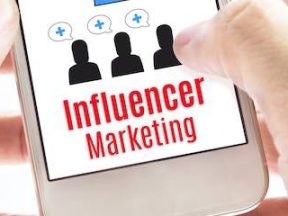A de-influencer tells followers what not to buy. The practice started on TikTok, where the hashtag #deinfluencing has over 300 million views. The idea is to counter overhyped product recommendations and encourage a mindful approach to shopping.
It is prominent in the fashion and beauty verticals as a response to heavy photo editing and aggressive sponsorships, although it’s spreading to tech and gaming.
The rise in paid influencer content means consumers are savvy to the sponsored tag in their feeds and don’t always trust a recommendation. De-influencing helps influencers rebuild trust with their audience as genuine and independent.
The trend may alarm businesses investing in influencer marketing, but it’s not that dramatic. De-influencing is not the end of influencers. It’s more of a rebrand. De-influencers still drive purchase decisions. When they recommend against buying a product, influencers often promote alternatives as more effective or a better value.
De-influencing Approaches
Buy less content seeks to reduce excess consumption. Brands with an environmental emphasis and long product life could benefit from this format.
@jess.cliftonn Declutter your home & then learn to buy less. It will change your life #deinfluence #deinfluencing #deinfluencingmakeup #deinfluencingproducts #minimalism #minimalist #sustainabilitytiktok #imperfectsustainability #sustainablelifestyle #eco #ecofriendly deinfluence deinfluencing Skincare routine Make up routine
—
Buy better encourages consumers to make better sustainability and ethical choices, which aren’t typically price-driven. It encourages purchasing from smaller independent brands and those with higher environmental standards.
@thethriftythinker Get your ass up and… pay your workers. #deinfluencing #fashiontiktok #slowfashion #sustainablefashion #skims #yitty #kimkardashian #fashionanalysis #sizeinclusivefashion
—
Buy cheaper discourages expensive trending products and recommends comparable affordable alternatives. Products that compete with major brands could benefit from this tactic.
@alyssastephanie I love deinfluencing ❤️ #deinfluencing #deinfluencergang #cultproduct
—
Debunking is content that counters a much-hyped product. Businesses that are targets of debunking should consider the feedback but avoid responding publicly unless there is a clear benefit, such as offering an alternative.
@cakefacereviews Replying to @agnesa.ak can we stop lying to ourselves about this blush now 💀 $69 worth of lies #diorblush #diorblushreview #diorblushrosyglow #rosyglow #rosyglowblush #makeup #deinfluencing #makeupfyp #makeupfail #makeupiregretbuying
—
Don’t buy this names products that didn’t work and why — frequently a personal preference. Influencers don’t often speak out against products, wary of damaging their relationship with brands. However, the authenticity of this approach is increasingly popular.
@morganturnermakeup As always, these are just my experiences with these products! Feel free to share youre in the comments! #concealers #worstmakeup #badmakeup #overhypedmakeup #worstconcealers #worstof22 #worstmakeupof2022 #worstconcealers2022 #dontbuythese #whatnottobuy #concealerfails #badconcealers




